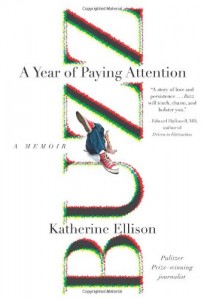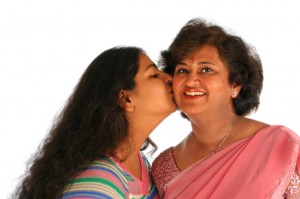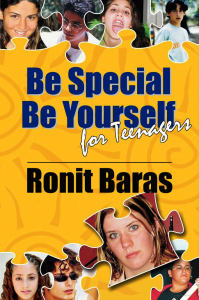|
|
November 12, 2010
The following parent’s “pledge” was originally written for and posted on SafetyWeb.com. SafetyWeb is a thoughtfully designed tool that provides parents with a means and a context for ongoing family conversations about safety, friendship and how the choices we make, online and off, have consequences.
 FOAD!! 3 out of 4 t(w)eens regularly use social media. (UPDATE Oct. 2013: The proportion of teens who say they don’t use social networks fell from 6% earlier this year to 2% the latest survey reports.) While the young ‘uns are scary good at navigating the tech, when it comes to connecting the dots between their digital choices and the resulting social consequences, most of them are clueless. If your kid has a cellphone and access to the Internet it’s up to you to teach them how to behave.
Q: If you don’t, who will?
A: Their equally clueless friends.
As a parent, I pledge to do the following to raise a responsible Netcitizen and teach my child about online safety:
- Social media is part of my child’s world. As a Safety Conscious Digital Parent, I pledge to do my best to raise my child to be a responsible digital citizen.
- I pledge to support my child’s use of age-appropriate social networking sites and to teach my child how to play safe and stay safe online so (s)he can grow in positive ways from online activities.
- I pledge to teach my child the difference between what is and what is not responsible and appropriate online behavior. That includes teaching my child the best ways to respond to anything online that makes him/her uncomfortable, angry or scared.
- I pledge to help my child understand the risks of giving out or posting personal information publicly online. (including photos, age, last name, name of school, home address, phone number.)
- Digitally-savvy kids’ “status anxiety” (their need to be accepted) affects their online behavior. My child has the right to choose his/her friends, but not the right to demean, harass or intimidate others. I pledge to make sure (s)he gets this message and acts accordingly.
- I pledge to have open, respectful dialogues with my child about how (s)he uses the services I give her access to online. When my child messes up (it’ll happen), I pledge to use the opportunity to teach him/her more socially acceptable behavior.
- I pledge to help my child discern between a true friend and someone with bad intentions, so that (s)he can use good judgment regarding online “friends,” as well as his/her own behavior.
- I pledge to educate my child on how their public online activity leaves a lasting digital footprint that teachers, college admissions officers, or future employers may see.
- I pledge to help my child understand the implications of online behavior so that my child can maintain his/her privacy, safety and good reputation while we keep a healthy, trusting and mutually respectful relationship between us.
You don’t need me to tell you why this stuff is import. So… can we all count on each other to do this?

November 9, 2010
 "Buzz: A Year of Paying Attention" by Katherine Ellison Today’s guest is Pulitzer Prize-winning investigative journalist Katherine Ellison. A veteran foreign correspondent and writing consultant, Katherine is also the mother of two sons and the author of four books including The Mommy Brain: How Motherhood Makes Us Smarter and her new memoir Buzz: A Year of Paying Attention.
Katherine Ellison gives all she’s got to every professional assignment. (You don’t win a Pulitzer Prize for phoning it in!) One day, she was driving on the freeway, late for a meeting with a new client, when her 12 year old son, Buzz, who’s got ADHD, had yet another major melt-down. Katherine’s 60-mile per hour response was equally over the top. That’s when she decided it was time to put on the brakes, back-burner all other career plans and spend a year paying attention to Buzz and his diagnosis while chronicling her findings and her feelings. In the process she discovered that she too has ADHD (which explained so much about the challenges she’s faced as a journalist and a mom).
Katherine diligently researched and investigated a wide range of ADHD treatments currently available to exhausted, loving parents like herself . For millions of Moms and Dads around the country and abroad who want desperately to help their children with attention deficit disorders find ways to get more control over their behavior so they can be happier and more successful in the classroom and beyond, her book is a welcome and much-needed resource.
If you or someone you care about has a child dealing with ADD/ADHD, you don’t want to miss this interview.
Listen to my conversation with Katherine Ellison right here:
[QUICKTIME http://www.anniefox.com/podcast/FC022.m4a 300 300 false true]
If you have iTunes, you can subscribe to this podcast in the iTunes Store.
Or, you can download an MP3 version here.
Upcoming guests include:
Sean Buvala, author of DaddyTeller: How to be a Hero to Your Kids and Teach Them What’s Really Important By Telling Them One Simple Story at a Time
Dr. Karyn Purvis, co-author (with Dr. David Cross, Wendy Lyons Sunshine) of The Connected Child: Bring hope and healing to your adoptive family
Judith Warner, author of Perfect Madness: Motherhood in the Age of Anxiety and We’ve Got Issues: Children and Parents in the Age of Medication
Rachel Simon, author of Riding The Bus With My Sister and The House on Teacher’s Lane

October 30, 2010
This article was originally written for and posted on SafetyWeb.com. SafetyWeb is a thoughtfully designed tool that provides parents with a means and a context for ongoing family conversations about safety, friendship and how the choices we make, online and off, have consequences.
 Thanks for respecting me, Mom. If your kids are 11-17, congrats! You’ve made it to the Major League of parenting. With little ones, you didn’t need fancy plays since you called all the shots. Now there’s often grumbling in the bullpen and effective parenting is all about nuance and negotiation.
As t(w)eens step up and make more of their own decisions, parents need to gradually step back. But your job’s not done yet! Kids still need us to be plugged in and monitoring their physical, social and emotional well-being. With 3/4 of middle and high school students actively engaged in social media, they need us more than ever.
But when does conscientious monitoring of young digital citizens cross the line and become disrespectful and intrusive? Good question! Hold that thought.
Just for the record, if you’ve got evidence or a vague sense that your child is engaging in harmful activities or is being hurt, threatened or harassed, monitor the situation very closely. Act on your gut. Question your kid at length. Tell what you know, suspect and fear. Dig deep and don’t give up until you get to the bottom of what’s going on. Then offer your strongest support, providing your child the help (s)he needs and follow up!
But what if nothing’s going on? How closely should you monitor then? I often hear from good, drug-free kids, who get excellent grades. They’re indignant because Mom/Dad snoop through their email and cell phones for no known reason. They’re exhausted by a so-called Velcro parent who can’t let go and constantly texts and phones their kids all the day.
In case you’re thinking: “I have the right to check in with my kid whenever I want and to know everything my kid’s doing at all times!” With all due respect, if you don’t have probable cause for poking into the personal exchanges your kids have with their peers, you shouldn’t. All kids, especially teens, have the right to a degree of privacy.
How much privacy? How much freedom? At what age? Depends. I don’t know your child or his track record for making responsible choices when you’re not around. Besides, parenting isn’t a science, it’s an art. We’re all artists, trying to figure out how to use our tools to launch a masterpiece, i.e., a fully functioning young adult. Unfortunately, there are no easy answers. But the most effective parents create and maintain healthy boundaries with their kids.
In 21st Century parent-speak the word “boundaries” often means “rules.” As in: Parents set up the rules and the kids (hopefully) comply. This top-down, one-way approach can lead to rebellion in the ranks. Family rules are part of any discussion of boundaries, but the fact is, healthy boundaries are a two-way street. Our personal boundaries deserve respect and so do our kids’. For example:
You politely inform your 13 year old she can’t go out with her friends because she didn’t keep her agreement to finish her homework first. Furious, she blasts you with a choice sampling from her name-calling inventory. Boundary alert! Your daughter disrespected you. She deserves a consequence from you so she doesn’t think for one minute that her behavior was acceptable.
Your 14 year old mumbles something about Coach being a “jerk” for not letting the boy start in tomorrow’s game. Incensed, you grab your phone. Your son shouts, “Don’t! I’ll handle it!” Ignoring him, you call Coach and give the “jerk” an earful. Double Boundary alert! By disregarding your son’s wishes, you disrespected him. You also rudely overstepped your parenting role by intervening between coach and student.
We all want our kids’ respect. That’s why we’ve got to hold them accountable for respecting our boundaries. While we’re at it, we need to respect their boundaries too. Great advice, though not always easy to follow. But like I said, parenting is an art… you’ve got to practice to improve. Besides, we’re not looking for perfection, just progress.

October 17, 2010
 "Be Special, Be Yourself for Teenagers" by Ronit Baras According to humanistic psychology founder Abraham Maslow we’re all driven by needs. In Maslow’s Hierarchy of Needs, the most basic ones are our physiological needs (air, food, water, sleep, sex, etc.). No surprises there. If you’re consistently not getting what you need in this category, nothing else matters.
After our survival needs are taken care of, then come our need for Safety, Love/Belonging, Esteem, and finally Self-Actualization. It’s all pretty interesting stuff and can be very helpful when you think about human behavior. Most behavior is driven by a need. The most outrageous, over-the-top and often inexplicable behavior is driven by intensely felt emotions tied to these needs. When a kid or a teen acts out, instead of solely addressing what the child is doing, effective parents take a short cut and directly explore the need behind the behavior.
It all sounds like a solid system. Just get your needs met and be happy. Simple. Except what happens when one need is in conflict with another? For example the need for acceptance (which is huge for t(w)eens) vs. the need to be unique, also a big one with middle and high school students. That kind of conflict could spell trouble and often does.
My guest today, Ronit Baras, who has studied and written about these conflicting needs and how they affect the life choices of adults and teens. Ronit is the co-creator of the “Be Happy in LIFE” life coaching program and the author of the two self help books, “Be Special, Be Yourself for Teenagers“ and “In the Outback with Jasmine Banks“.
Ronit is an experienced educator as well as an international speaker. Among her clients are private institutes, schools, universities, public organizations, government bodies, educational associations, financial corporations.
For her community work, Ronit Baras has been nominated twice for “Australian of the Year.”
Listen to our conversation right here:
[QUICKTIME http://www.anniefox.com/podcast/FC021.m4a 300 300 false true]
If you have iTunes, you can subscribe to this podcast in the iTunes Store.
Or, you can download an MP3 version here.
Upcoming guests include:
Katherine Ellison, author of the memoir, Buzz: A Year of Paying Attention
Sean Buvala, author of DaddyTeller: How to be a Hero to Your Kids and Teach Them What’s Really Important By Telling Them One Simple Story at a Time
Dr. Karyn Purvis, co-author (with Dr. David Cross, Wendy Lyons Sunshine) of The Connected Child: Bring hope and healing to your adoptive family
Judith Warner, author of Perfect Madness: Motherhood in the Age of Anxiety and We’ve Got Issues: Children and Parents in the Age of Medication
Rachel Simon, author of Riding The Bus With My Sister and The House on Teacher’s Lane
 — Older Posts »
| |















